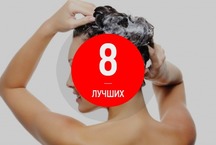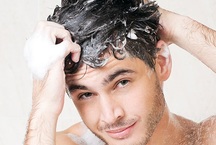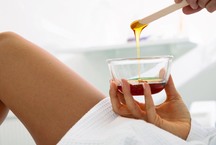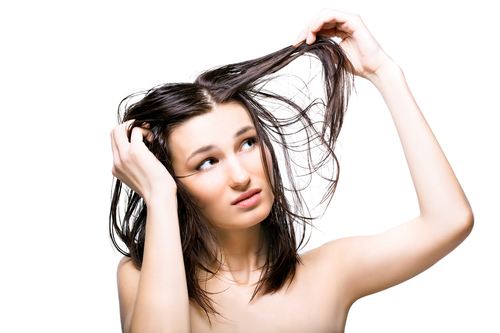
What is greasy hair?
Calling hair oily, experts suggest that the sebaceous glands in the hair follicles of the scalp are very active. Excessive sebum tends to spread easily through the hair shafts, and as a result, a quick salting of the curls. If the oily skin is not associated with hormonal disruption in the body or unhealthy diet, then this is a genetically determined feature, which we cannot drastically change. However, it is in our power to adjust the hair care in such a way as to reduce the torment of ever-greasy hair to a minimum.
Despite the "inconvenient" features of oily hair, experts consider it far from the worst. Sebum - a great emolent and additional hydrophobic protective layer that traps moisture in the skin and hair shaft. Therefore, with proper care to achieve beauty oily hair is much easier than, for example, dry and lifeless. And the main assistant in this matter is the right shampoo.
Criteria for choosing the best shampoo for oily hair
Good shampoo for oily hair acts in 3 directions:
- effectively cleans hair and scalp;
- reduces the activity of the sebaceous glands;
- gives hair softness and shine, provides easy combing.
Choosing shampoo for oily hair, immediately abandon the funds with an opaque and, in particular, pearl texture. They contain a lot of nutrients that, when washed, settle on the hair and cause them to get dirty faster. Shampoo for oily hair should be transparent or translucent.
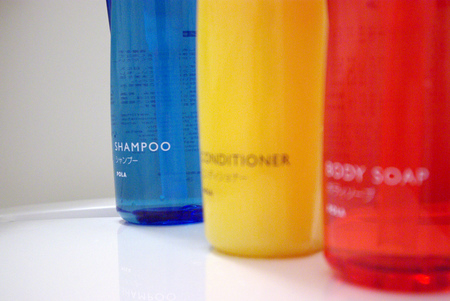
Photo: images.techtimes.com
Let us consider in more detail each component of an effective shampoo for oily hair.
Surfactants: the best and worst
Surface-active substances (surfactants) are responsible for cleansing the skin and hair from dirt - sebum, horn scales and external contamination. It would seem that the “harder” surfactant, the better it cleans the skin and hair from impurities and the more it is suitable for oily type of scalp. However, this is a big mistake.
The trick lies in the fact that an aggressive effect on the skin leads to the loss of moisture and the destruction of the lipid mantle, and this serves the body as a signal to even more active sebaceous glands. As a result, the shampoo that cleansed the hair so well at first makes it even worse soon. Hair can begin to get dirty even faster than before, and the top layer of skin can dry and peel off, leading to dandruff.
To avoid this unpleasant situation, oily hair choose shampoos with mild detergents. The sparing washing bases a huge set. For example, Caprylyl / Capryl Glucoside ), Sodium PEG-7 / Olive Oil Carboxylate (sodium carboxylate) and many others. They do not disturb the hydrolipid balance of the scalp; on the contrary, they can “soothe” over-active sebaceous glands, which simply have nothing to protect the skin from. The problem of soft surfactants is as follows:
- high price and, as a result, unpopularity with the mass producer. Sparing ingredients are used in luxury and premium cosmetics, and it is far from cheap.
- not always effective cleansing. With an unsuccessful recipe of “soft” shampoo, oily hair can be washed out poorly, there is no feeling of purity. It is good if in shampoos not one surfactant is used, but their combination, which ensures maximum efficiency.
Unfortunately, ordinary manufacturers rarely take into account the needs of greasy hair, using the most inexpensive detergent bases that are not very delicate. Some store shampoos are based on sodium laureth sulfate (Sodium Laureth Sulfate).This is not the worst option. If the skin and hair with a long-term use perceive it well, it makes no sense to spend money on softer (and more expensive) shampoos. But such ingredients as sodium lauryl sulfate (Sodium Lauril Sulfate) and lauryl ammonium sulfate (Ammonium Lauril Sulfate), it is better to categorically avoid. They are too aggressive and will not benefit any greasy or dry hair.
Experts advise to pay attention to such "sulfate" surfactants such as TEA Layril Sulfate (Triethanolamine Lauryl Sulphate) and TEA Layreth Sulfate (Triethanolamine Laureth Sulphate). They are not so expensive to produce, provide high-quality cleansing and do not overdry the scalp. But these washing bases are not widely spread.
Components regulating the sebaceous glands
If you have oily hair, feel free to choose a shampoo with nettle extract. On the one hand, it muffles the activity of the sebaceous glands, on the other, slightly fluffs the horny scales of hair, preventing the sebum from quickly enveloping them. Extracts of horsetail, birch buds, sage, coltsfoot, calamus, oak bark, witch-hazel, seaweed have a calming effect on the sebaceous glands.
Good results for oily hair show essential oils: lemon, bergamot, cedar, chamomile, pine, cypress, tea tree, lavender. They reduce the activity of the sebaceous glands and have a slight anti-inflammatory effect. The ability to regulate the production of fat also have substances such as sulfur and zinc.
Oily hair is extremely important to maintain a normal level of skin moisture. This is largely facilitated by a mild detergent base in the shampoo, but other components that retain moisture in the skin and hair are also useful: glycerin, chitosan, lecithin, panthenol (provitamin B5) and etc.
Silicones - a kind of protective "clothes" for the curls, giving them shine and easier combing, but in the case of oily skin type, care is needed so as not to "imbued" the hair. Choose shampoos for oily hair with light silicones (for example, cyclopentasiloxane) or even without them, if you use a balm after washing.
Fatty oils are heavy, so they have no place in shampoos for oily hair. You can’t go wrong if you choose oily hair shampoo with jojoba oil or grape pitswhich have the property to regulate the production of fat, but they are also better to leave for caring masks.
Shampoos for greasy roots and dry tips - what is it?
Alas, the cosmetic industry has not yet invented shampoos that could so selectively affect the skin and hair. All active ingredients "work" ONCE to the entire length of the hair. Any shampoo on a hard surfactant will sooner or later dry these very tips. Any quality shampoo on the complex of soft surfactants will clean the hair well, without drying any part of them. All other applications can be considered promotional tricks manufacturers.
Summarize
Oily hair type needs a special approach and a special shampoo. But it is not at all necessary to buy all the bottles labeled “for greasy hair” in a store or pharmacy. This inscription does not always mean the real effectiveness of the tool. Enough to carefully examine the compositions of different shampoos and choose the option for a delicate detergent basis with a good set of plant extracts and moisturizers. Successful purchase and beautiful hair!
